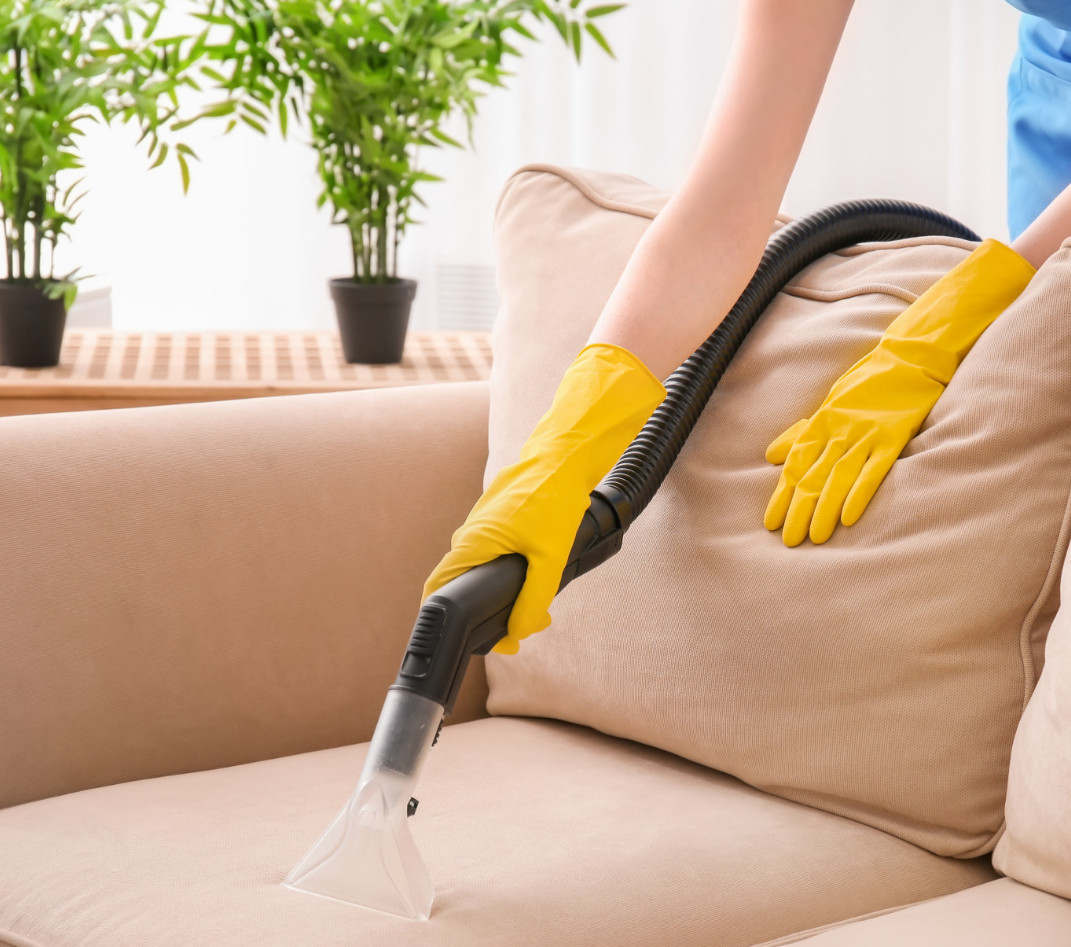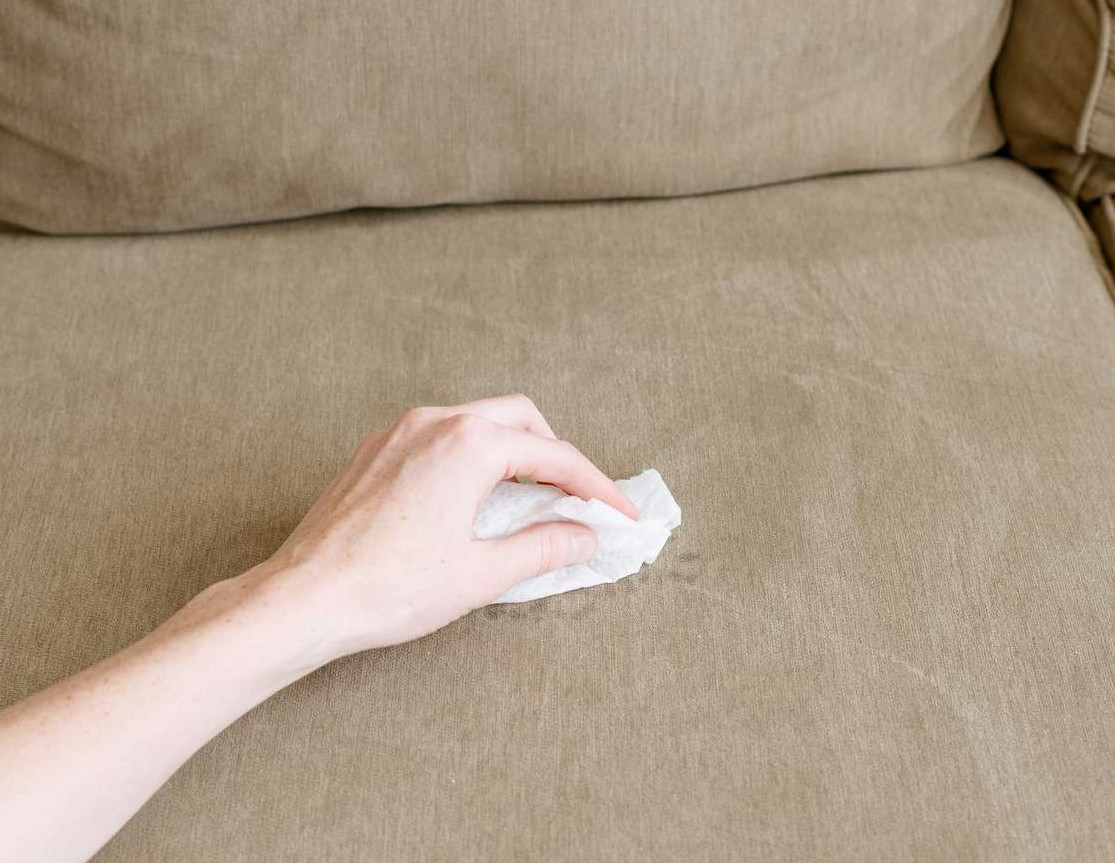Can Vinegar Ruin Your Couch ? What You Need to Know
Vinegar is a long-known natural cleaning solution. It cuts through dirt, smells clean and disinfects, it has become a household essential all over the world. But if you want to use vinegar on your couch, especially if it is of special or fragile fabric, the question must be asked: Will vinegar harm your couch? The answer is yes and no, based on application. Here in this essay, we are going to learn the science of vinegar as a cleaning solution, how it is harmful to other couch types, and expert techniques to clean your couch safely. What’s more, I’ll throw my two cents in to help you decide.
The Chemistry of Vinegar
Vinegar is actually just acetic acid in water and most house vinegar is about 5% acid. This gentle acidity is strong enough to wash away minerals, grease, and dirt, so vinegar can be used to clean things. It is also antibacterial, so can get rid of germs. But the very acidity that is what makes vinegar such a great cleaner also comes at the cost of some materials, particularly those that are porous, fragile or stains.

What Couch Fabrics Are And How Vinegar Affected by It.
1. Fabric Couches
Flexible couches: Fabric couches are the most used sofas in the home. They can be cotton, polyester, linen, or combinations of these. Vinegar will take away odors and some stains, but the acidity will destroy the fibers when it’s overused or left undiluted. For instance, a polyester couch might do better with vinegar dilute than a cotton or linen couch, which are more water- and acid-sensitive.
Layla Armstrong, as the author of this article and a home management expert, says :
My light grey cloth couch was once cleaned with vinegar, over a tiny coffee smudge. The stain did disappear, but I did see a slight stain where the vinegar went. As it was inspected more closely, the fabric was a little rougher and the fibres had been compromised. This taught me never to put vinegar in an obscure place and never to use it on the whole.
2. Leather Couches
Leather is a material that is very expensive and it needs regular upkeep. Undiluted vinegar in particular can dry out and crack leather by removing its oils, which will dry the leather dry and brittle. Even diluted vinegar, can damage unless conditioned.
Expert Tip:
If you absolutely have to use vinegar on leather, make it in equal amounts with a clean, dry cloth and dab it only on sparse areas. After washing, immediately treat with leather conditioner to give the leather moisture and elasticity.

3. Synthetic Leather (Faux Leather)
Artificial leather is more acid-resistant than the real thing but it can also get harmed. It can peel or crack when left to soak in vinegar for too long if the substrate is not well-made.
Expert Advice:
To clean fake leather, use a commercial cleaner specifically made for fake leather or use a mix of vinegar and water on a diluted basis, only in the last minute.
You can also read these articles on our website:
4. Microfiber Couches
Couches usually are made of microfiber because it’s stain-resistant and cleanable. Vinegar may remove stain from microfiber, but the acid can make watermarks or streaks if not rinsed off well.
Personal Insight:
I did remove a smudge of ink from my microfiber couch with vinegar and rubbing alcohol. But I needed to be very careful afterwards and blot the area with a damp tissue so that I did not end up with streaks.
5. Velvet Couches
Velvet is a soft fabric and easily ruined by solutions such as vinegar. Applying vinegar to velvet will discolor, rip and shrink velvets.
Professional Advice:
Vinegar does not belong on velvet. You should use a dry cleaning product that’s made for silk fabrics instead.
What To Don’t Do When You Use Vinegar On Couches Here Are The Most Common Mistakes That You Make While Using Vinegar On Couches.
Using Undiluted Vinegar
Undiluted vinegar is disaster waiting to happen on the couch. The acidity can bleach it, leaving stains, discolouration or damaged fibers.
Skipping the Patch Test
Be sure to test one small, inconspicuous spot on the couch before putting vinegar on a larger surface. This is to make sure that the substance does not take ill effects.
Over-Saturating the Material
Too much moisture will percolate into the cushions and supporting framework creating mold, mildew, or odours. Never just put vinegar directly on the couch but wipe with a damp cloth.
Not Rinsing or Neutralizing
As the acid in vinegar can get left behind unless rinsed or washed away with water. This leads to smudges or gathers dirt with use.
Alternatives to Vinegar for Couch Cleaning That Are Safer Than Vinegar?
If you’re worried about the hazards of vinegar, here are some other options:
Mild Dish Soap and Water
Small amounts of dish soap in warm water will do the majority of couch material no harm.
Baking Soda
The baking soda works great for deodorizing and cleaning fabric sofas. Dump it on the surface, wait 15–20 minutes, and vacuum it up.
Commercial Upholstery Cleaners
They’re made for specific couches and usually have directions for proper use.
Steam Cleaning
Steam cleaning – Steam cleaning of fabric and microfiber couches is a chemical-free solution to dirt and stains.
My Tips for Using Vinegar Properly, But Carefully.
So here are some simple instructions to use if you’re thinking of vinegar to wash your couch:
Dilute the Vinegar
Put one part vinegar in two parts water, so that it doesn’t burn the material as hard.
Make a Wet Cloth or Spray Bottle Use a Soft Cloth or Spray Bottle.
Spray the diluted solution with a soft cloth or spray bottle, making sure you get the right amount.
Blot, Don’t Rub
Blot stain only gently instead of rubbing (rubbing spreads the stain and causes wear on the fabric).
Dry Thoroughly
Be sure to dry the cleaned area completely with a fan or a hair dryer on low to avoid any water damage.
Follow Up with Conditioning
If it’s leather couches, never dry clean the leather once it’s dried to retain the softness.
FAQ :
- Will vinegar ruin a couch?
Vinegar is generally safe for most couches, especially when diluted with water. However, it can potentially damage certain materials like leather or delicate fabrics if used undiluted or in excess. Always test on a small, hidden area first to ensure it doesn’t cause discoloration or harm. - Will white vinegar damage furniture?
White vinegar is usually safe for furniture when properly diluted, but it can harm certain finishes, such as wax or untreated wood. Avoid using it on delicate surfaces without testing, as it may strip finishes or cause discoloration over time. - How long to let vinegar sit on a couch?
When cleaning a couch with vinegar, let the solution sit for 5-10 minutes to break down stains or odors. Avoid leaving it for too long, as prolonged exposure may damage certain fabrics or materials. Blot and rinse the area afterward. - Does white vinegar harm fabric?
White vinegar is generally safe for most fabrics when diluted, but it can weaken or discolor delicate materials like silk or rayon. Always dilute it with water and test on an inconspicuous area before applying it to the entire fabric.
Article source:

I never knew that vinegar could damage leather couches. Do you have any recommendations for good leather-specific cleaners?
For leather couches, it’s best to use cleaners specifically designed for leather care. Look for products labeled as “leather conditioners” or “leather cleaners” that are pH-balanced. These will clean the surface without stripping away the natural oils. Brands like Lexol, Weiman, or Leather Honey are highly recommended. Also, regularly applying a leather conditioner will help maintain its softness and prevent cracks
I’ve been using vinegar to clean my cotton sofa, but I had no idea it could weaken the fibers over time. How often is it safe to use diluted vinegar for deodorizing fabric couches?
Hi Daniel! You’re right to be cautious about overusing vinegar on cotton sofas. For deodorizing, you can safely use a diluted vinegar solution (1 part vinegar to 2 parts water) once every 2-3 months. Always perform a spot test first and ensure the area is well-ventilated to avoid lingering odors. For day-to-day cleaning or frequent deodorizing, consider alternatives like baking soda, which is gentler on fibers.
Thanks for breaking down the precautions for different materials! I have a microfiber couch—should I combine vinegar with baking soda for tough stains, or is just vinegar enough?